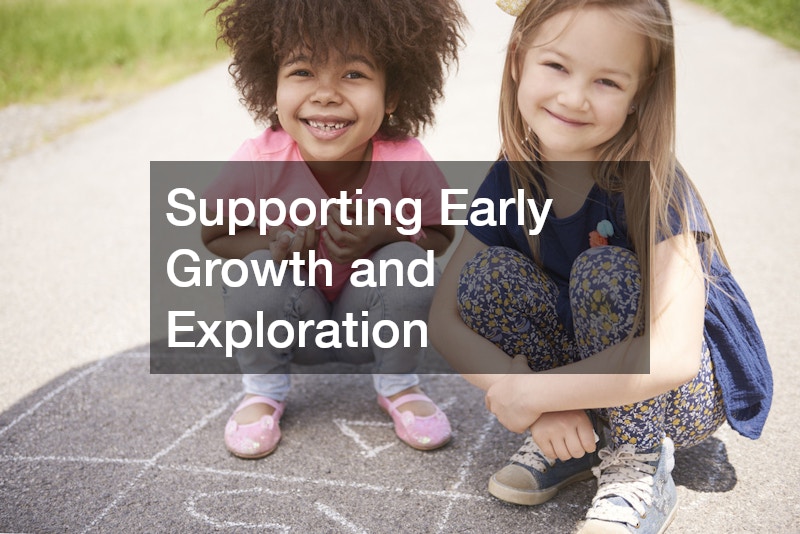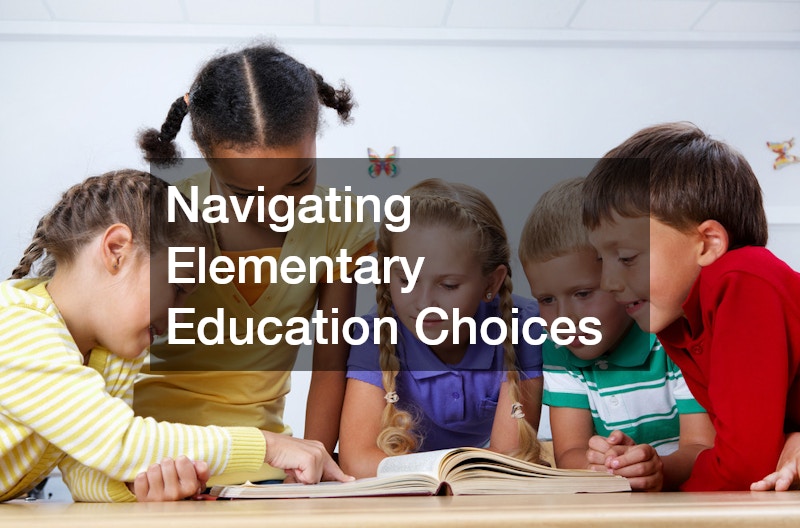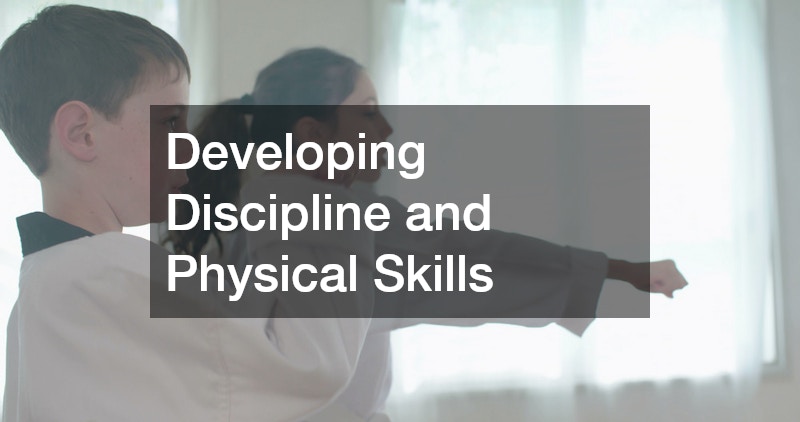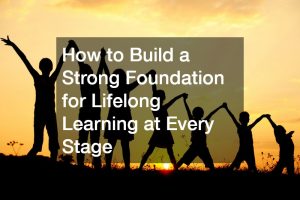In the vibrant tapestry of a child’s educational journey, each stage presents its own unique challenges and opportunities. From the formative years of early learning through the transition into secondary education, the foundation established during these periods plays a critical role in shaping both academic success and overall personal growth. Parents and guardians often face numerous decisions, from selecting early learning environments to identifying programs and activities that foster well-rounded development. Encouraging exploration across a variety of disciplines, including languages, arts, and physical activities, helps children cultivate essential skills, confidence, and curiosity. Supporting these experiences ensures that children not only acquire foundational knowledge but also develop into well-rounded, resilient individuals. Given the long-lasting impact of these formative years, it is essential to explore how educational foundations are nurtured, focusing on fostering early growth, choosing supportive learning environments, and enriching learning experiences across multiple domains.

Supporting Early Growth and Exploration
At the heart of children development are the experiences they have in their early years that influence their lifelong learning. These formative years are crucial as they lay a foundation for future educational success and personal growth. A child’s ability to explore their environment, ask questions, and interact socially are all part of the process, creating a rich ground for curious minds to blossom.
Supporting early growth involves providing opportunities that foster physical, emotional, and cognitive advancement. Through engaging environments, children can explore their surroundings while developing essential life skills. Whether participating in a music program or practicing new social skills during play, these moments become the building blocks for more advanced educational pursuits.
Furthermore, caregivers and educators play an intrinsic role in shaping these experiences. By creating stimulating learning environments that are safe, inclusive, and nurturing, they ensure children develop strong socially and academically. Encouragement and positive reinforcement at this stage are vital as they contribute significantly to the overall development, laying down a strong foundation for future learning.
Choosing the Right Early Education Environment
Choosing the right early education environment is a pivotal decision for parents wishing to provide a solid foundation for their children’s academic journey. The right childcare service can offer more than just a location for safe supervision—it becomes the first educational environment that nurtures learning, curiosity, and growth. Understanding what constitutes an ideal setting for early education is crucial in making an informed choice.
Different factors must be considered, including the quality of the facility, the qualifications and competencies of the staff, and the educational philosophy guiding the childcare service. Parents should seek environments where children are encouraged to learn through play, socially interact with peers, and develop critical thinking skills. Above all, ensuring that foundational learning experiences align with family values is essential.
A tailored environment that matches the unique needs of toddlers provides a supportive background for exploration and growth. Be it through structured programs that incorporate a music program or informal settings that allow free exploration, the goal is to stimulate and inspire young minds. Making such a choice is not just about immediate needs but setting up for long-term educational success.
Providing Care Tailored to Toddlers
Toddler care represents a unique phase in children development, requiring specialized attention to effectively support growth and exploration. An ideal toddler care environment goes beyond safety and security. It fosters a holistic developmental approach that encourages fine motor skills through play activities and social skills through interaction with peers.
The foundation of an exceptional toddler care program incorporates a diverse set of activities designed to promote cognitive and emotional growth. Such activities may include play-based learning opportunities that are seamlessly integrated into the daily routine. Exposure to various elements like music, puzzles, and storytelling further aids in laying down a robust foundation in these early stages.
Equally important is the approach taken by caregivers, who should possess the skills and passion necessary to engage toddlers effectively. Interdisciplinary approaches that merge educational objectives with care ensure toddlers are not only well-looked after but are continuously learning and expanding their horizons. Providing such comprehensive care sets the stage for smoother transitions into more structured educational environments.

Navigating Elementary Education Choices
As children transition to their first formal education experience, selecting the right elementary schools becomes a priority. This stage marks a crucial aspect of foundation, as children start to develop academic skills that will be fundamental throughout their education. A well-chosen foundation in these initial years is crucial for setting the tone for lifelong learning and development.
Elementary schools offer varied curricula and extracurricular programs that cater to different learning styles and interests. Parents should be attuned to these differences, seeking an environment that aligns with their aspirations for a child’s education. The inclusion of programs like a music program, diverse art offerings, and competitive sports are often indicators of a well-rounded educational establishment.
Moreover, understanding the school’s educational philosophy and values assures parents of a partnership that extends to their child’s educational journey. Schools that focus on individualized learning plans, inclusive practices, and positive reinforcement often provide children with a conducive learning atmosphere. These aspects are critical in fostering a strong educational foundation that caters to personal growth and academic achievement.
Enriching Learning Through the Arts
In the realm of children development, the arts provide a critical avenue for expression and creativity. Incorporating a music program within educational settings is not simply a supplementary element but an integral component of a comprehensive educational experience. By engaging in music and other forms of art, children are provided opportunities to explore their creativity while supporting cognitive and emotional growth.
Artistic endeavors, such as participation in music, dance, and visual arts, present unique learning opportunities beyond traditional academic subjects. These activities stimulate different areas of the brain and encourage innovative thinking and problem-solving skills. Therefore, a foundation within the arts enriches learning by presenting new avenues for expression and communication.
Schools that prioritize a rich arts program tend to foster environments that are more inclusive and supportive of diverse talents. By providing children access to a well-rounded curriculum that includes the arts, educators help cultivate a generation of creative thinkers ready to tackle future challenges. Integrating arts into education is indeed central to creating a balanced and nurturing educational system that supports all aspects of a child’s development.
Evaluating Top Educational Institutions
In pursuit of the best private school, understanding the nuances that define top educational institutions can guide parents in making the right choice. Such schools are often characterized by their innovative curricula, rigorous academic standards, and a wide range of extracurricular opportunities. An institution that consistently produces excellent outcomes is a likely candidate for offering a comprehensive foundation in education.
Evaluating these institutions requires a thorough analysis of their academic offerings, commitment to personal development, and the success of their alumni. Insights into how these private schools integrate programs like a music program and language studies into their curriculum can provide further clarity regarding their overall educational philosophy. The goal is to find a school that aligns with both academic goals and personal growth objectives.
Furthermore, the reputation of a school, its faculty expertise, and commitment to maintaining a supportive learning environment are key considerations. As children progress, these foundational elements become vital not only in achieving academic excellence but also in shaping them into well-rounded individuals prepared for the future. Choosing the right private school is thus an investment in a child’s overall development and future success.

Understanding Curriculum Choices
Among the factors influencing private school decisions, understanding the nuances of the private school curriculum is crucial. These curriculums are often distinct from their public counterparts, emphasizing a well-rounded educational approach tailored to individual learners’ needs and interests. A varied curriculum serves as a foundation for extensive learning experiences across multiple disciplines.
Many private schools emphasize interdisciplinary learning, combining core subjects with experiential learning opportunities. This approach often includes participation in distinct programs, like a music program or language immersion courses, such as a French class. Such diverse educational content aims to promote critical thinking and problem-solving abilities, essential components for success in the modern world.
Moreover, a curriculum aligned with high educational standards ensures that foundational academic skills are built upon progressively. Parents can evaluate whether the private school’s curriculum incorporates modern pedagogical approaches and supports diverse learning methods. When done effectively, these schools offer not just academic rigor but a comprehensive foundation for lifelong learning.
Learning a Second Language
The inclusion of second language programs, such as a French class, is integral to cultivating global citizens ready to thrive in a connected world. Learning a second language in school provides children with cognitive benefits and fosters cultural awareness. These experiences become an important foundation for broadening worldviews and enhancing communication abilities.
Private schools often integrate language learning into the curriculum seamlessly, ensuring that students have access to quality language education from an early age. Whether through immersive language programs or dedicated classes, such initiatives help children develop proficiency in languages like French, thereby expanding their intellectual and cultural horizons.
Furthermore, providing a foundation in a second language helps pave the way for future academic and professional successes in an increasingly interconnected global economy. With language skills, children and adolescents are better positioned to appreciate diverse perspectives and engage in international discourse. This commitment to multilingualism enhances children’s overall educational experience and supports them in becoming adaptable, culturally aware individuals.
Preparing for Secondary Education
Preparing for secondary education involves a strategic transition that builds upon foundational knowledge while introducing more complex academic and social environments. A private middle school can be a pivotal point for setting students on a path towards academic excellence and holistic development. Ensuring children are ready for this transition requires thoughtful preparation and support.
A robust private middle school program offers small class sizes, individualized attention, and a curriculum focused on developing critical thinking and analytical skills. Schools that emphasize diverse learning methods, including STEM programs and arts integration, provide a well-rounded educational foundation for adolescents. Such balanced curricula help students navigate their tween years effectively, preparing them for the rigors of higher education.
Additionally, private schools often offer extensive extracurricular opportunities that further enhance foundation during these transitional years. Programs like competitive sports, student clubs, and activities such as a martial arts school can bolster discipline and physical skills, shaping adept and well-rounded individuals. Preparing for secondary education in a supportive environment ensures students can thrive academically and socially in their subsequent educational endeavors.

Developing Discipline and Physical Skills
Beyond academic achievement, fostering discipline and physical skills is essential in a child’s overall development. Institutions like a martial arts school provide unique opportunities for children to develop these attributes while instilling values such as respect, perseverance, and self-control. These skills serve as a foundation that transcends educational settings.
Martial arts are holistic disciplines blending physical prowess with mental fortitude. Participation aids in enhancing children’s coordination, balance, and physical strength, while also promoting character development and self-esteem. These experiences become vital not only in mitigating stress but also in equipping children to approach life’s challenges with confidence and resilience.
Programs that integrate martial arts into the school curriculum provide students with an alternative route to learning how to set and achieve realistic goals. The emphasis on continuous self-improvement aligns with broader educational objectives, reinforcing foundation. Ultimately, these programs contribute immensely in crafting harmonious and disciplined individuals who are prepared to excel in multifaceted environments.
The journey through education is filled with choices that significantly impact a child’s development. By focusing on setting a strong foundation from early childhood to secondary education, parents and educators can guide children in achieving their full potential. Balancing academic pursuits with extracurricular activities through programs like a music program, language acquisition, and participation in a martial arts school ensures a diverse and enriching educational experience.
As children develop, the decisions surrounding their education should continually reflect their evolving interests and abilities. Thoughtful planning and evaluation of available educational environments are essential in providing the required support for foundation at every stage. By prioritizing a well-rounded education that includes structured classroom learning and diverse extracurricular experiences, parents lay down the groundwork for successful lifelong learning.
Ultimately, the foundation of a child’s education is paramount to their success and adaptability in future endeavors. Whether through selecting the best private school, engaging children in creative arts, or encouraging language acquisition, the commitment to educational excellence is a critical investment. With unwavering support, children stand prepared to thrive in an ever-changing global landscape, equipped with skills and values necessary for holistic growth.


